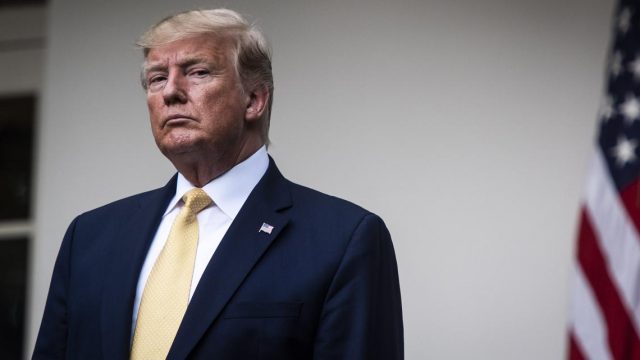President Trump, It’s Time to Withdraw From Afghanistan

Since the 2001 invasion, the American taxpayers have spent nearly $1 trillion on military operations in Afghanistan.
It’s a total that doesn’t include spending by covert branches of our government, such as the CIA or ancillary costs associated with the war incurred by organizations like the Department of Veterans Affairs.
But now a bombshell report from the Washington Post – one based on thousands of documents obtained after years of legal wrangling – shows that the longest war Americans have ever fought has become an exercise in futility.
An excerpt:
A confidential trove of government documents obtained by The Washington Post reveals that senior U.S. officials failed to tell the truth about the war in Afghanistan throughout the 18-year campaign, making rosy pronouncements they knew to be false and hiding unmistakable evidence the war had become unwinnable.
The documents were generated by a federal project examining the root failures of the longest armed conflict in U.S. history. They include more than 2,000 pages of previously unpublished notes of interviews with people who played a direct role in the war, from generals and diplomats to aid workers and Afghan officials. …
“We were devoid of a fundamental understanding of Afghanistan — we didn’t know what we were doing,” Douglas Lute, a three-star Army general who served as the White House’s Afghan war czar during the Bush and Obama administrations, told government interviewers in 2015. He added: “What are we trying to do here? We didn’t have the foggiest notion of what we were undertaking.”
“If the American people knew the magnitude of this dysfunction . . . 2,400 lives lost,” Lute added, blaming the deaths of U.S. military personnel on bureaucratic breakdowns among Congress, the Pentagon and the State Department. “Who will say this was in vain?”
This report is an echo of the Pentagon Papers, a trove of documents published in 1971 revealing that the Vietnam War was a lost cause. Then as now, America’s leaders lacked the courage to own up to a failed policy. When confronted with evidence of failure, these leaders spun the situation. They perpetrated falsehoods, including outright lies and manipulated data, and on that basis declared one conditional success after another while requesting more money to continue operations:
Several of those interviewed described explicit and sustained efforts by the U.S. government to deliberately mislead the public. They said it was common at military headquarters in Kabul — and at the White House — to distort statistics to make it appear the United States was winning the war when that was not the case.
“Every data point was altered to present the best picture possible,” Bob Crowley, an Army colonel who served as a senior counterinsurgency adviser to U.S. military commanders in 2013 and 2014, told government interviewers. “Surveys, for instance, were totally unreliable but reinforced that everything we were doing was right and we became a self-licking ice cream cone.”
This has to stop. The initial invasion of Afghanistan after the 9/11 attacks was entirely justified. Osama bin Laden’s al Qaeda organization designed and perpetrated those attacks, and both that organization and its leader had made their base in Afghanistan. The invasion was a given.
But that was decades ago. Osama bin Laden is dead. A weakened and marginalized al Qaeda, to the extent that it still exists today, has dispersed to regions across Africa, the middle east, and southeast Asia.
The threat of Islamic extremism continues to be very, very real, but the war in Afghanistan stopped being the logical way to address it a long time ago.
The war has cost the lives of 3,565 soldiers from America and our allied countries. Of that total, six were from North Dakota, six were from South Dakota, ten were from Montana, and thirty were from Minnesota.
Even one soldier’s death, even one person scarred for life physically or emotionally or both, is a heavy price to pay for American foreign policy.
We have to pay it, sometimes, but when we do, it is incumbent upon our leaders to ensure the cost in blood and treasure is worthy of the prize.
No person can say that’s true of Afghanistan now.
It’s time to leave. Our departure will leave a power vacuum, probably to be filled by some evil people, but what’s the alternative? We’ve lost the lives of 25 soldiers in Afghanistan so far this year, and that’s about the average for every year since 2014. Do we continue paying that price, not to mention billions upon billions of tax dollars, in a futile attempt to stave off the inevitable?
Or does someone need to grit their teeth and make the hard call?
Interestingly, of the three Presidents we’ve had during the war in Afghanistan, it’s Donald Trump who has been the most skeptical of Afghanistan, even going so far as to invite Taliban leaders to Camp David for negotiations. I suspect, if President Trump follows through on his rhetoric, he’ll get little in the way of thanks for it.




